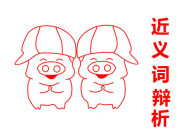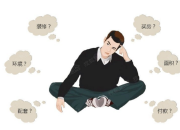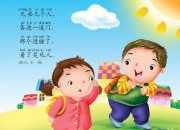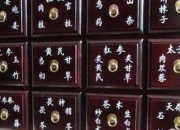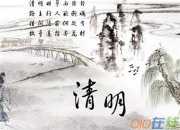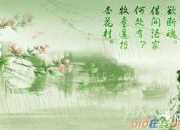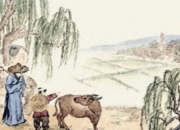勇气的英文阅读美文
时间:2021-08-31关于勇气的英文阅读美文
美文阅读:关于勇气
"So you think I'm courageous?" she asked.
"Yes, I do."
"Perhaps I am. But that's because I've had some inspiring teachers. I'll tell you about one of them. Many years ago, when I worked as a volunteer at Stanford Hospital, I got to know a little girl named Lisa who was suffering from a rare and serious disease. Her only chance of recovery appeared to be a blood transfusion from her five-year-old brother, who had miraculously survived the same disease and had developed the antibodies needed to combat the illness. The doctor explained the situation to her little brother, and asked the boy if he would be willing to give his blood to his sister. I saw him hesitate for only a moment before taking a deep breath and saying, 'Yes, I'll do it if it will save Lisa.'
"As the transfusion progressed, he lay in a bed next to his sister and smiled, as we all did, seeing the color returning to her cheeks. Then his face grew pale and his smile faded. He looked up at the doctor and asked with a trembling voice, 'Will I start to die right away?'
"Being young, the boy had misunderstood the doctor; he thought he was going to have to give her all his blood.
"Yes, I've learned courage," she added, "because I've had inspiring teacher."
--Dan MillmanNo
tecourageous:勇敢的 inspiring:鼓舞的 transfusion:输血
“你觉得我很勇敢,是吗?”她问到。
“是的。”
“也许吧,那是因为我有许多精神导师。我来讲给你他们其中的一位吧。多年以前,我在斯坦福德医院做义工的时候,认识了一个叫丽莎的小姑娘,她患了一种罕见的,极其严重的病。她唯一可能康复的机会就是从她五岁的弟弟那里移注血液。他曾奇迹般地从这种可怕的病魔手中逃脱,并产生了可以抵抗这种疾病的抗体。医生把姐姐的处境告诉了她的小弟弟,问他是否愿意给他姐姐输血。我看到他仅仅犹豫了片刻,便深深吸了一口气说:“ 如果这样可以救丽莎的话,我愿意。”
在输血的`时候, 他躺在姐姐旁边的一张床上,看到她的面颊渐渐红润,他就跟我们一起微笑着。随后,他自己的脸色却变得苍白,笑容也渐渐消失了。他抬头看着医生颤声问到:“我是不是马上就要死了?”这个孩子太天真了,他误解了医生的话,以为要把他的血全部都输给姐姐。
她又说到:“是的,我知道了什么是勇气,因为我有许多精神导师。”
英语阅读:AnEmptyBox
Once upon a time, a man punished his 5-year-old daughter for using up the family's only roll of expensive gold wrapping paper. Money was tight, and he became even more upset when on Christmas Eve, he saw that the child had pasted the gold paper so as to decorate a shoebox to put under the Christmas tree.
Nevertheless, the next morning the little girl, filled with excitement, brought the gift box to her father and said, "This is for you, Daddy!"
As he opened the box, the father was embarrassed by his earlier overreaction.
But when he opened it, he found it was empty and again his anger flared. "Don't you know, young lady, " he said harshly, "when you give someone a present there's supposed to be something inside the package!"
The little girl looked up at him with tears rolling from her eyes and said: "Daddy, it's not empty. I blew kisses into it until it was all full."
The father was crushed. He fell on his knees and put his arms around his precious little girl. He begged her to forgive him for his unnecessary anger.
An accident took the life of the child only a short time later. It is told that the father kept that little gold box by his bed for all the years of his life. Whenever he was discouraged or faced difficult problems he would open the box, take out an imaginary kiss, and remember the love of this beautiful child who had put it there.
In a very real sense, each of us as human beings have been given an invisible golden box filled with unconditional love and kisses from our children, family, friends and God.
There is no more precious possession anyone could hold.
英语阅读:HappinessEquateswithFun?
I live in Hollywood. You may think people in such a glamorous, fun-filled place are happier than others. If so, you have some mistaken ideas about the nature of happiness.
Many intelligent people still equate happiness with fun. The truth is that fun and happiness have little or nothing in common. Fun is what we experience during an act. Happiness is what we experience after an act. It is a deeper, more abiding emotion.
Going to an amusement park or ball game, watching a movie or television, are fun activities that help us relax, temporarily forget our problems and maybe even laugh. But they do not bring happiness, because their positive effects end when the fun ends.
I have often thought that if Hollywood stars have a role to play, it is to teach us that happiness has nothing to do with fun. These rich, beautiful inpiduals have constant access to glamorous parties, fancy cars, expensive homes, everything that spells "happiness".
But in memoir after memoir, celebrities reveal the unhappiness hidden beneath all their fun: depression, alcoholism, drug addiction, broken marriages, troubled children, profound loneliness.
The way people cling to the belief that a fun-filled, pain-free life equates happiness actually diminishes their chances of ever attaining real happiness. If fun and pleasure are equated with happiness, then pain must be equated with unhappiness. But, in fact, the opposite is true: More times than not, things that lead to happiness involve some pain.
As a result, many people avoid the very endeavors that are the source of true happiness. They fear the pain inevitably brought by such things as marriage, raising children, professional achievement, religious commitment, civic or charitable work, and self-improvement.
英语阅读:TodayisaGift
Two men, both seriously ill, occupied the same hospital room. One man was allowed to sit up in his bed for an hour each afternoon to help drain the fluid from his lungs. His bed was next to the room‘s only window. The other man had to spend all his time flat on his back. The men talked for hours on end.
They spoke of their wives and families, their homes, their jobs, their involvement in the military service, where they had been on vacation. And every afternoon when the man in the bed by the window could sit up, he would pass the time by describing to his roommate all the things he could see outside the window. The man in the other bed began to live for those one-hour periods where his world would be broadened and enlivened by all the activity and color of the world outside.
The window overlooked a park with a lovely lake. Ducks and swans played on the water while children sailed their model boats. Young lovers walked arm in arm amidst flowers of every color of the rainbow. Grand old trees graced the landscape, and a fine view of the city skyline could be seen in the distance. As the man by the window described all this in exquisite detail, the man on the other side of the room would close his eyes and imagine the picturesque scene.
One warm afternoon the man by the window described a parade passing by. Although the other man couldn‘t hear the band - he could see it in his mind‘s eye as the gentleman by the window portrayed it with descriptive words.
Days and weeks passed. One morning, the day nurse arrived to bring water for their baths only to find the lifeless body of the man by the window, who had died peacefully in his sleep. She was saddened and called the hospital attendants to take the body away.
As soon as it seemed appropriate, the other man asked if he could be moved next to the window. The nurse was happy to make the switch, and after making sure he was comfortable, she left him alone. Slowly and painfully, he propped himself up on one elbow to take his first look at the world outside. Finally, he would have the joy of seeing it for himself. He strained to slowly turn to look out the window beside the bed. It faced a blank wall.
The man asked the nurse what could have compelled his deceased roommate who had described such wonderful things outside this window. The nurse responded that the man was blind and could not even see the wall. She said, "Perhaps he just wanted to encourage you."
